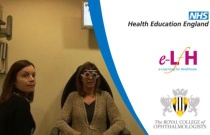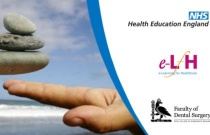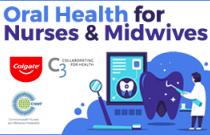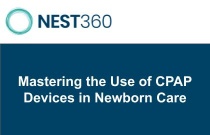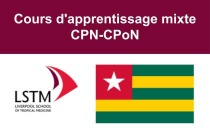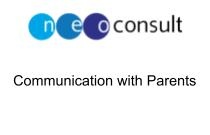Depression
Manushri Jain and Sambavi Navaratnarajah
This session will help foundation year doctors to recognise, assess and manage depressive disorder in various clinical settings. UKFP Curriculum 2021 This elearning session covers some of the behaviours in: FPC1: Clinical assessment: assess patient needs in a variety of clinical settings including acute, non-acute and c....
Providing Eye Care Services in a Hospital Versus Community Setting
Chris Steele
This session describes the provision of eye care services in hospital and community settings, including the requirements of practitioners engaged in providing General Ophthalmic Services.
Holistic Assessment of the Patient
Marion Lynch and Martin Hobdell
This session looks at holism, i.e. the integration of physical, psychological and social components of health problems. It explores patients’ and dentists’ perceptions of holism and how these influence the presentation of problems, communication, diagnoses and the sharing of management planning.
Oral Health for Nurses and Midwives
Jill Iliffe
• The course has six modules. • Each module should take around 30 minutes to complete. • There is a pre-test quiz and a post-test quiz. • There is a short quiz after each module for you to check how much you have remembered. • At the end of the course there are resources relevant to each module you can download for future re....
Mastering the Use of CPAP Devices in Newborn Care
Prof Elizabeth Molyneux, Edith Gicheha, Prof Joe Langton, Christina Samuel, Prof June Madete
This module is tailored to build your confidence and competency in the use of CPAP devices. The course is interactive and tailored to allow you to go through it at your own pace. Throughout the course, you will get moments of reflection on what you have learnt and at the end, you will do an assessment and once you have att....
Neonatal Resuscitation Webinar
Mustapha Mahama
Neonatal resuscitation is one of the most critical interventions in saving the lives of newborns globally. Immediately after birth, about 10% of newborns will require support by way of resuscitation to survive and thrive. Delay in initiation and ineffective resuscitation increases the newborn's chances of death and complications....
Cours d'apprentissage mixte CPN-CPoN
Par l'Unité d'obstétrique d'urgence et de qualité des soins, Département de santé publique internationale de Liverpool School of Tropical Medicine, en collaboration avec l'Université de Lomé, Togo
Ce cours couvre les éléments essentiels des soins prénatals et postnatals, y compris l'intégration des services liés au VIH, à la tuberculose et au paludisme, ainsi que les soins de qualité, les soins de maternité respectueux, la communication et l'évaluation de la santé émotionnelle et mentale. Il explique comment organiser les....
Neonatal Thermoregulation
Dr. Juli Reynolds PhD
Neo Consult Temperature control or thermoregulation in the neonate is a critical physiological function that is strongly influenced by physical immaturity, the extent of illness and environmental factors. The neonate´s susceptibility to temperature instability needs to be recognised and understood in order to appropriately m....
Assessing Gestational Age and Size at Birth
Dr. Juli Reynolds PhD
Neo Consult The course is designed for nurses and midwives. The course consists of several sections including gestational age assessment, birthweight classifications, common complications of the preterm as well as the postterm infant.
Breast Cancer Upskilling for Primary Healthcare Workers
Dr Sue Down, Dr Ruth James
This course provides additional learning opportunities and resources for Primary Healthcare Workers undertaking training in Breast Cancer management enrolled on the GHP Global Breast Cancer Project. The learning is mapped to the WHO Global Breast Cancer Initiative which aims to reduce global breast cancer mortality. Primary heal....
Retinopathy of Prematurity (ROP)
Dr. Juli Reynolds PhD
Neo Consult This course has been designed for nurses working in a Neonatal Intensive Care Unit. The goal is to prevent visual impairment and blindness due to retinopathy of prematurity (ROP), which is a major course of childhood blindness and mainly affects extremely preterm infants. Uncontrolled oxygen supplementation and p....
Preterm Labour and Preterm Rupture of the Membranes
Dr. Juli Reynolds PhD
Neo Consult This course is designed to offer postgraduate education to resident obstetricians, midwives and nurses working in ante- and postnatal wards as well as in the delivery room. It will support you to change and develop your ways of thinking, inspiring you to become an independent learner who thinks creatively to solve....
Monitoring the Condition of the Mother During the First Stage of Labour
Dr. Juli Reynolds PhD
Neo Consult This course has been developed for nurses working in the Neonatal Intensive Care Unit. The course will enable you to develop your performance in practice, theorise practice and develop the knowledge and skills required to be competent in the role of a neonatal intensive care nurse. Target Audience: Midwife....
Nasal Continuous Positive Airway Pressure (NCPAP) for Neonates
Dr. Juli Reynolds PhD
Neo Consult This course has been developed for nurses working in the Neonatal Intensive Care Unit. The course will enable you to develop your performance in practice, theorise practice and develop the knowledge and skills required to be competent in the role of a neonatal intensive care nurse. Target Audience: 1) Neonata....
Abdominal Wall Defects
Dr. Juli Reynolds PhD
Neo Consult This course has been developed for nurses working in the Neonatal Intensive Care Unit. The course will enable you to develop your performance in practice, theorise practice and develop the knowledge and skill required to be competent in the role of a neonatal intensive care nurse. 1. Neonatal Residence. 2. Neonata....
BALLARD Scoring
Dr. Juli Reynolds PhD
Neo Consult This course has been developed for nurses working in the Neonatal Intensive Care Unit. The course will enable you to develop your performance in practice, theorise practice and develop the knowledge and skills required to be competent in the role of a neonatal intensive care nurse. Target Audience: 1) Neonata....
The Second Stage of Labour
Dr. Juli Reynolds PhD
Neo Consult This course has been developed for nurses working in the Neonatal Intensive Care Unit. The course will enable you to develop your performance in practice, theorise practice and develop the knowledge and skills required to be competent in the role of a neonatal intensive care nurse. Target Audience: Midwifes Antena....
APGAR Scoring
Dr. Juli Reynolds PhD
Neo Consult This course has been developed for nurses working in the Neonatal Intensive Care Unit. The course will enable you to develop your performance in practice, theorise practice and develop the knowledge and skills required to be competent in the role of a neonatal intensive care nurse. Target Audience: 1) Midwive....
The Third Stage of Labour
Dr. Juli Reynolds PhD
Neo Consult This course has been developed for nurses working in the Neonatal Intensive Care Unit. The course will enable you to develop your performance in practice, theorise practice and develop the knowledge and skills required to be competent in the role of a neonatal intensive care nurse. Target Audience: Midwifes Antena....
Feeding Normal Infants
Dr Juli Reynolds
Historically, monkeypox has been documented in children and adolescents living in areas where monkeypox infections occur more commonly. Once illness occurs, the clinical presentation is expected to be similar to illness in adults. However, it is not known whether children are more susceptible to monkeypox than adults or whe....
Respiratory Distress and Apnoea
Dr Juli Reynolds
This course has been developed for nurses working in NICU, PICU and paediatric wards. The course will enable you to develop your performance in practice, theorise practice and develop the knowledge and skills required to be competent in the role of a neonatal intensive care nurse.
Communication with Parents
Dr Juli Reynolds
This course has been developed for all nurses working with children. The course will develop your communications skills and understanding of the importance in communication with parents when caring for children.
Paediatric Healthcare - Nutrition
Dr. Juli Reynolds
This course covers the importance of nutrition in a child’s life. The nutritional status is the child’s physical appearance which indicates whether they are well nourished or poorly nourished. Children with normal nutrition receive the correct amount of all the essential types of food necessary for normal growth and good health....
Pediatric Healthcare - Diarrhea
Dr. Juli Reynolds
This course covers the following topics. Understand the importance and danger of diarrhoea. The causes and complications of diarrhoea. The manage diarrhoea and how to prevent diarrhea.
When the Small Baby Is Not Growing Well
GHM
This course is about the dangers of when the small baby is not growing well

